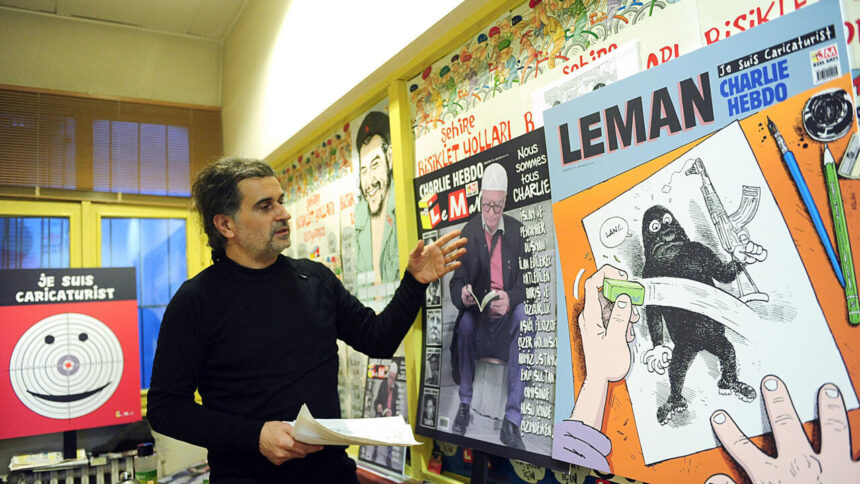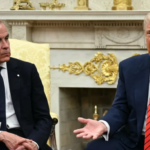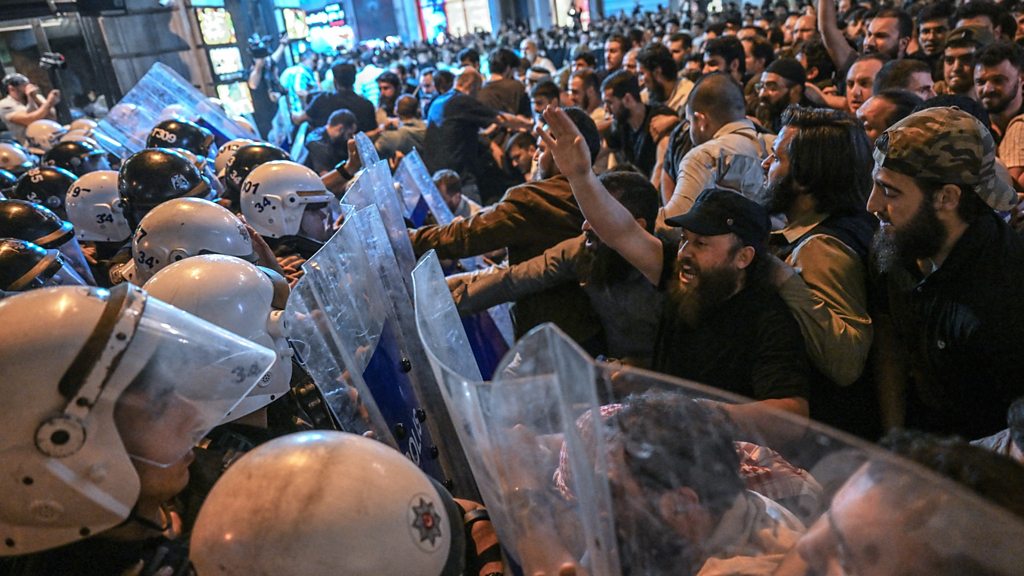
Turkey cartoon arrests has arrested four journalists from the satirical publication LeMan following the release of a controversial cartoon accused of depicting the Prophet Muhammad — a sacred figure whose visual representation is forbidden in Islam. The arrests have triggered widespread protests and reignited debates over press freedom and religious sensitivity in the country.
LeMan Journalists Detained Amid Blasphemy Allegations
According to Interior Minister Ali Yerlikaya, the magazine’s editor-in-chief, cartoonist, graphic designer, and institutional director were taken into custody. Arrest warrants have also been issued for additional senior staff members. Yerlikaya called the image a “shameless and vile drawing” and shared footage of the arrests on social media Turkey cartoon arrests.
Justice Minister Yilmaz Tunc confirmed that an investigation had been launched for “publicly insulting religious values.” He stated that the publication not Turkey cartoon arrests only offends Islamic sentiments but also threatens “societal peace.”
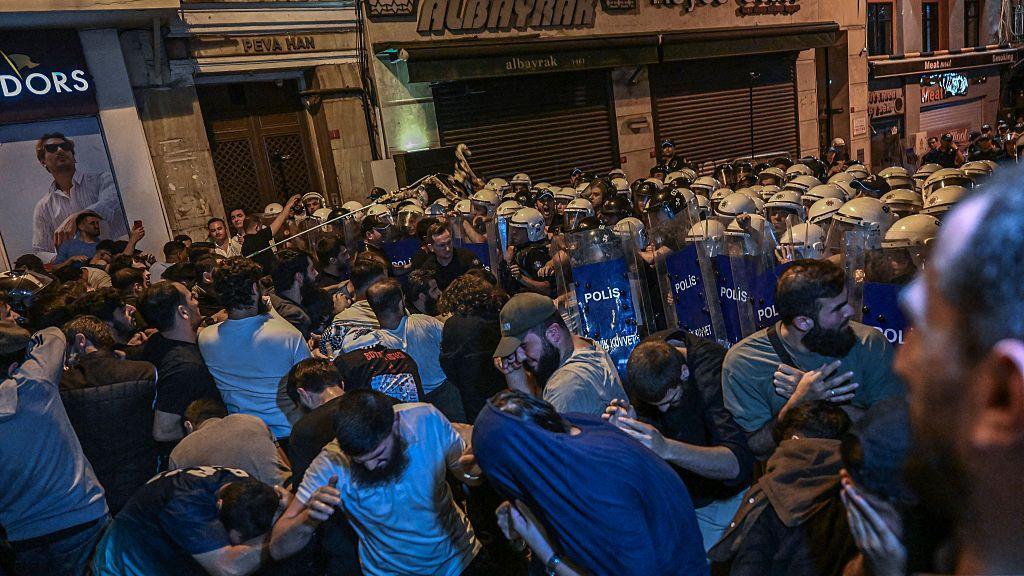
LeMan Magazine Denies Allegation
LeMan denied that the cartoon depicted the Prophet Muhammad. The magazine clarified on X (formerly Twitter) that the image shows two winged figures, one identified as “Muhammed” and the other as “Musa” (Moses), floating above a war-torn city. LeMan claimed the cartoon was intended to depict solidarity with Muslim victims of Israeli aggression, not mock religion.
“The cartoonist wanted to portray the righteousness of oppressed Muslims… and never intended to insult religious values,” the publication stated. It issued an apology to “well-intentioned readers who feel hurt” while standing by its editorial intent.
Istanbul Erupts in Protest
In response to the cartoon, hundreds of protesters gathered outside LeMan’s Istanbul office chanting slogans like “Tooth for tooth, blood for blood.” Riot police used tear gas and rubber bullets to disperse the crowd, according to AFP correspondents on the ground. Video footage circulating on social media showed violent clashes and tension escalating.
Free Speech vs Religious Sensitivity
The incident echoes global flashpoints involving depictions of Islamic figures. LeMan’s editor-in-chief, Tuncay Akgun, currently in Paris, told AFP the magazine would “never take such a risk” of intentionally insulting Islam. He compared the backlash to the 2015 Charlie Hebdo attack in France, calling the comparison “intentional and worrying.”
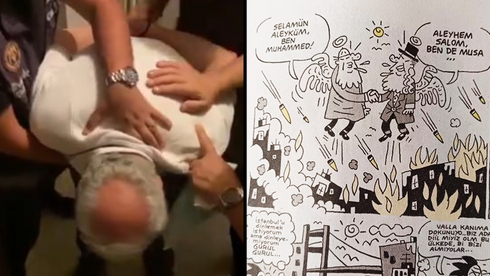
Charlie Hebdo had published caricatures of the Prophet Muhammad and later suffered a deadly terror attack in Paris, killing 12 people. That tragedy remains a critical point in the global debate on freedom of speech and religious respect.
Global and Legal Implications
Turkey, a country balancing secular governance and Islamic traditions, has often faced criticism for curbing freedom of expression. Rights groups have long expressed concern over the country’s use of blasphemy laws and anti-terror statutes to silence dissent and criticism, particularly in media and the arts.
The current arrests are expected to draw international scrutiny from watchdogs like Reporters Without Borders and Human Rights Watch.
Conclusion

As tensions rise, Turkey’s legal crackdown on LeMan’s journalists has reignited concerns about the thin line between religious sensitivity and press freedom. While the government accuses the magazine of inciting religious hatred, LeMan and its supporters say the arrests represent another blow to artistic and editorial independence in the country.
With arrest warrants still pending and public anger boiling, Turkey is again at the center of a contentious and global conversation.


